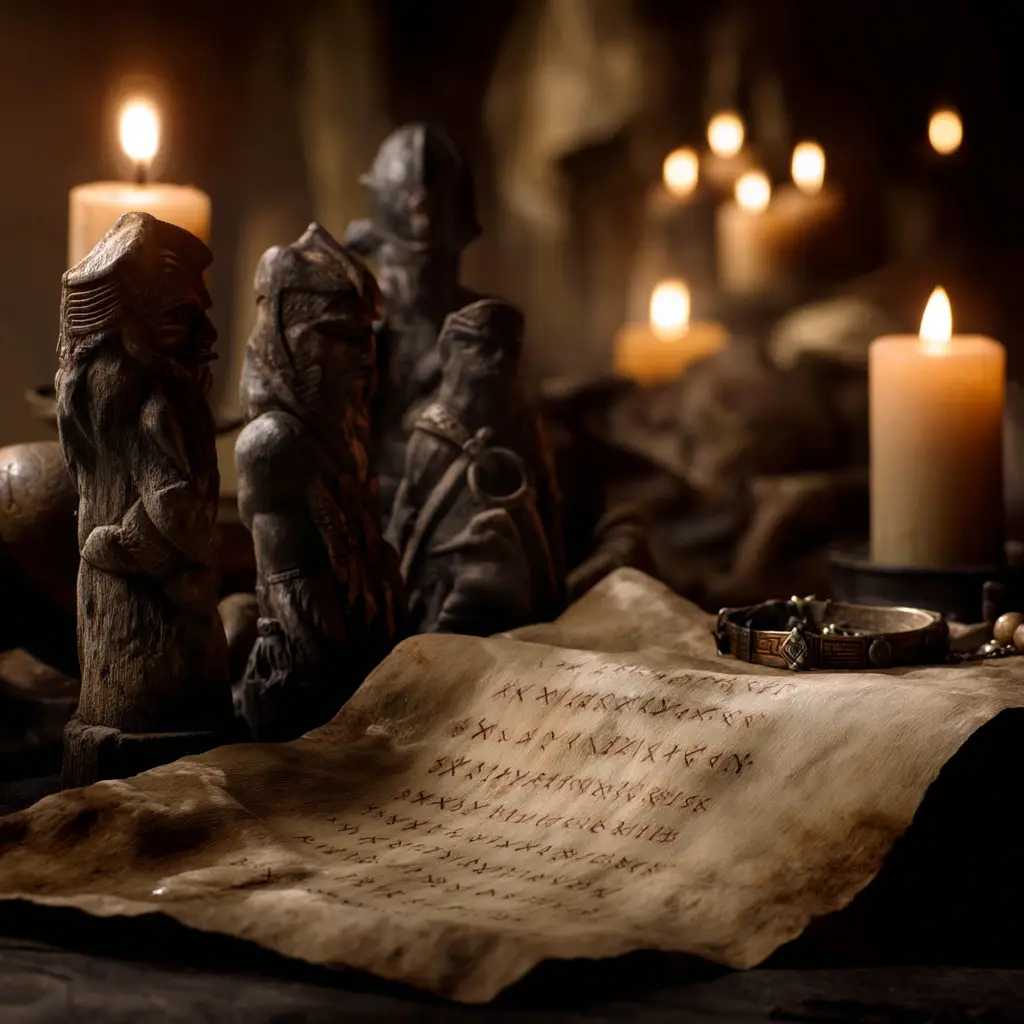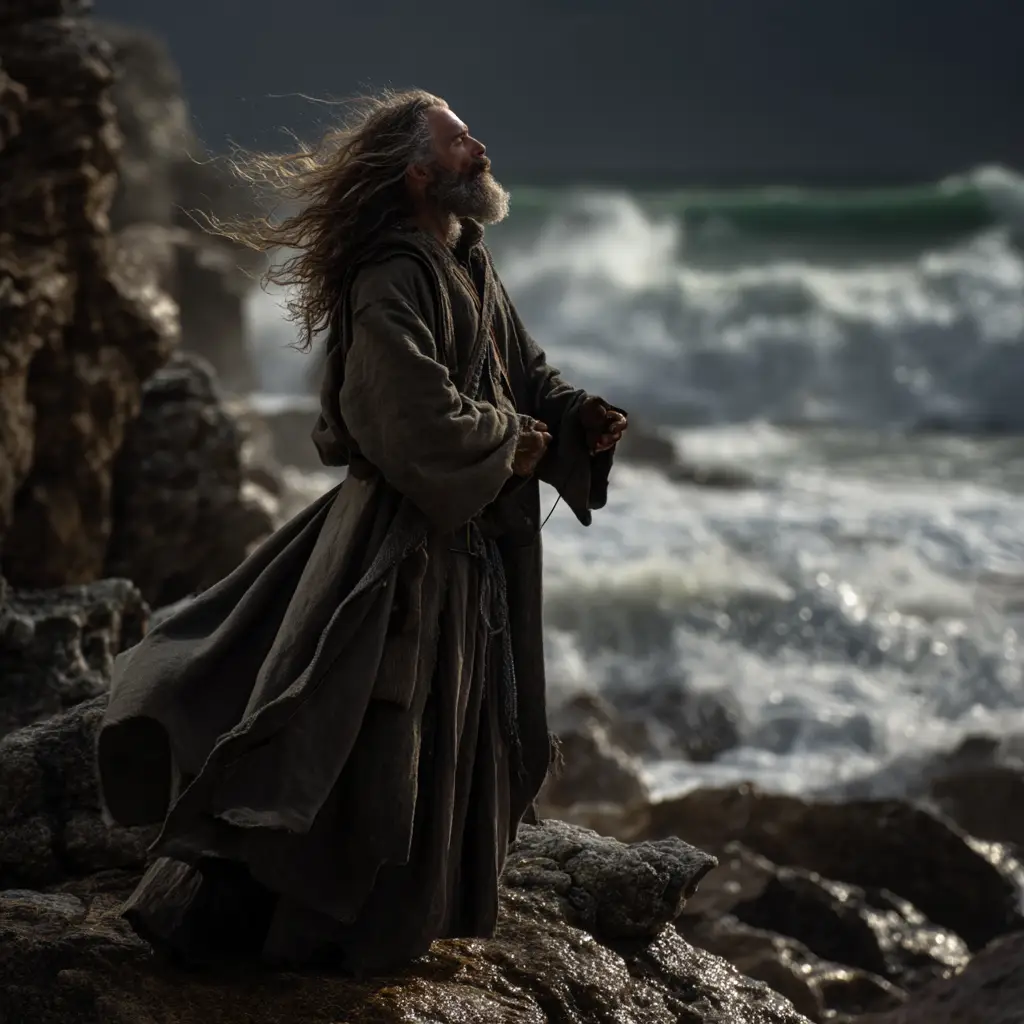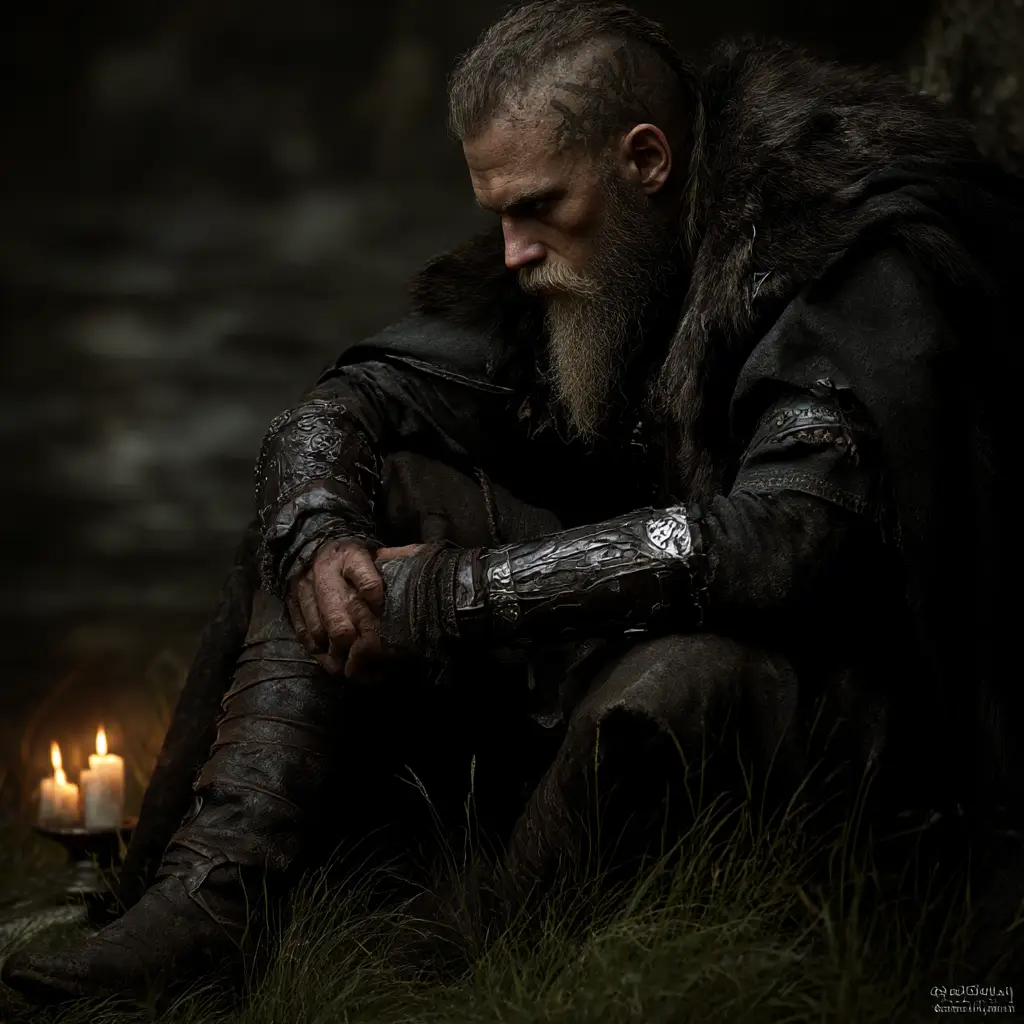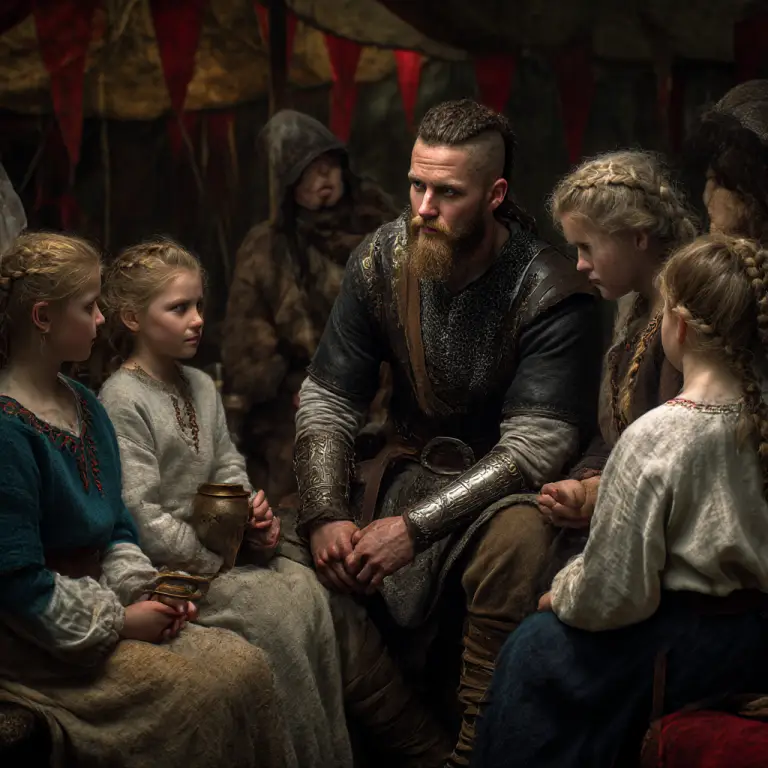Viking Poetry: The Voice of the North
Viking poetry offers a powerful glimpse into the world of the Norse people — their beliefs, values, humour, and fierce warrior spirit. Far from being simple or crude, Viking poetry was highly sophisticated, using complex forms and rich imagery to tell stories, preserve history, and honour the gods and heroes.
Types of Viking Poetry
Viking poetry mainly survives in two forms:
Eddic Poetry
- Found in the Poetic Edda, a 13th-century Icelandic collection, but composed much earlier.
- Usually anonymous and written in a simple, direct style.
- Themes include mythology, heroic tales, wisdom poems, and riddles.
- Famous examples: Völuspá (The Prophecy of the Seeress), Hávamál (Sayings of the High One).
Skaldic Poetry
- Composed by named poets called skalds at royal courts or for wealthy patrons.
- Complex in style, using strict metre and dense wordplay.
- Often celebrated kings, warriors, and great deeds, or composed as laments, insults, or memorials.
- Famous skalds: Egill Skallagrímsson, Snorri Sturluson, Bragi Boddason.
Style and Techniques
Viking poets used distinctive poetic devices:
- Alliteration – Repetition of initial consonant sounds to create rhythm and emphasis.
- Kennings – Metaphorical phrases like “whale-road” (sea) or “battle-sweat” (blood), often requiring deep cultural knowledge to understand.
- Heiti – Poetic synonyms, such as using “steed” instead of “horse.”
- Dróttkvætt metre – The highly structured form used in skaldic poetry, with strict rules for syllable counts, stresses, and internal rhyme.
Themes and Subjects
Viking poetry dealt with a wide range of topics, including:
- Gods and Myths – Stories of Odin, Thor, Loki, and the fate of the world at Ragnarök.
- Heroic Deeds – Battles, voyages, feuds, and acts of bravery.
- Love and Desire – Although rare, some verses capture longing, courtship, or loss.
- Wisdom and Reflection – Teachings on life, death, honour, and fate.
- Humour and Insult – Poets often used sharp wit or composed flyting (verbal duels).
Cultural Importance
In Viking society, poetry was not just entertainment — it was memory, status, and power. Poets were respected figures who preserved genealogies, shaped public opinion, and influenced leaders. A well-composed verse could win favour at court or shame an enemy. Even ordinary people valued poetic skill, and many sagas mention men and women who composed verses in moments of triumph or crisis.
Legacy
Much of Viking poetry has survived thanks to the efforts of medieval Icelandic scribes. Today, it remains a rich source of inspiration for writers, artists, historians, and anyone interested in Norse culture. Its influence can be seen in modern literature, music, and film, and it continues to fascinate audiences with its raw power and timeless themes.



